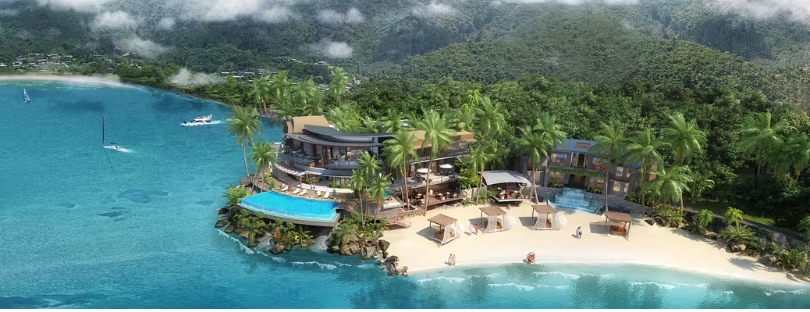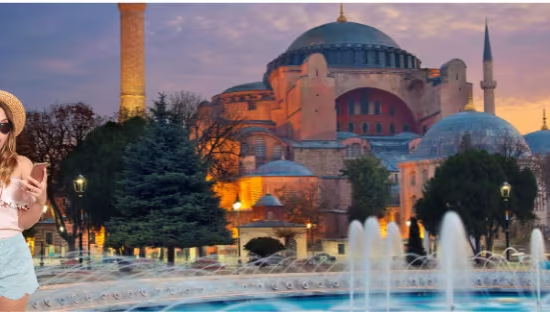
Top 10 Hotel Brands in 2024: Hilton, Hyatt, Marriott Lead Global Rankings
Hilton has retained its position as the world’s most valuable hotel brand for the tenth consecutive year, according to the latest report by Brand Finance, the world’s leading brand valuation consultancy. Hilton’s brand value increased 30% to USD15.1 billion, with the group expanding its global footprint and strengthening its offering in the luxury and lifestyle space. Now operating more than 8,600 properties across 139 countries and territories- with nearly half of 2024’s additions coming from the lifestyle and luxury segments – this growth underscores Hilton’s focus on experience-led travel and premium positioning.
Hyatt (up 32% to USD8 billion) holds second place, boosted by net rooms growth, a record development pipeline, and major openings across Asia and South America. Marriott (up 20% to USD3.8 billion) climbs to third, overtaking Hampton Inn (down 25% to USD3.1 billion), following a year of record signings, loyalty programme enhancements, and technology-driven service upgrades.
Henry Farr, Director, Brand Finance commented:
“The global hotel sector is firmly back in growth mode, with the total brand value of the top 50 hotel brands rising 4% this year to USD58.8 billion. Leisure and experience-led travel continue to drive performance, while key metrics like occupancy and RevPAR are on the rise. Asia-Pacific is leading the way, with China’s outbound travel resurgence playing a major role in the recovery.”
Taj is the world’s strongest hotel brand with a Brand Strength Index score of 92.2 out of 100. According to Brand Finance research, the Indian luxury hotel brand secured perfect scores in knowledge and selection in its home market. Scandic Hotels (BSI 91.3) and Marriott (BSI 90.0) rank second and third for brand strength, respectively. The UK’s Premier Inn made one of the biggest jumps, rising from 22nd to fifth strongest, supported by strong awareness and perceived value in the UK.
Leisure & Tourism Sector Growth and Future Outlook
The Brand Finance report also provides a broader perspective on the Leisure & Tourism sector. The total brand value of the world’s top 25 most valuable brands in this space grew 22% to USD 71.9 billion over the past year, signaling a robust industry-wide recovery. Cruise lines recorded the fastest comeback, with brand value rising 57% year-on-year, reflecting pent-up demand and new vessel launches.
Royal Caribbean International led this resurgence with the high-profile introduction of its Oasis and Icon Class ships, offering innovative amenities and record passenger capacities. Such bold investments in new experiences underscore the sector’s willingness to reinvent itself for post-pandemic travelers hungry for adventure and novelty. At the same time, online travel agencies and booking platforms continue to play an essential role in driving travel demand and consumer choice.
Booking.com retained its position as the most valuable Leisure & Tourism brand globally, with a valuation of USD 10.5 billion. Its success underscores the critical importance of digital convenience, price transparency, and global reach. As travelers increasingly rely on online tools to plan, customize, and manage their journeys, brands that can deliver seamless, user-friendly experiences are likely to maintain an edge.
Final thoughts
Hilton’s sustained dominance as the world’s most valuable hotel brand is more than a branding triumph—it reflects a broader shift in the hospitality industry toward experience-first, tech-enabled, and lifestyle-centric travel. As global occupancy and RevPAR levels rebound and surpass pre-pandemic benchmarks in many regions, especially across Asia-Pacific, we’re seeing that brands investing in emotional connection, loyalty innovation, and tech-powered guest experiences are the ones pulling ahead.
What sets leaders like Hilton, Hyatt, and Marriott apart isn’t just scale or legacy—it’s adaptability. Their focus on lifestyle and luxury, accelerated digital transformation, and reimagined loyalty ecosystems align with the evolving expectations of a younger, more experience-driven traveler. Whether it’s frictionless mobile check-ins, AI-enhanced personalization, or wellness-oriented room design, the brands winning market share are those translating cultural and technological shifts into tangible guest value.
The emergence of Taj as the world’s strongest hotel brand, based on brand strength rather than size, further illustrates that regional players who deeply understand their core market—and embed that knowledge into service, design, and brand identity—can compete on the global stage.
Looking ahead, the hospitality sector is poised for a wave of consolidation, innovation, and realignment. Expect more brands to double down on sustainable operations, hyper-localized guest experiences, and automation—not to reduce staff, but to free them for more human, high-touch service. The brands that will lead the next decade aren’t just the biggest—they’ll be the smartest, fastest, and most in tune with both guest emotion and digital behavior.
In short, Hilton’s decade-long reign may be a milestone, but it’s also a roadmap. The future of hospitality belongs to those who think beyond rooms and rates—and design every touchpoint as part of a curated, tech-savvy, brand-led journey.









